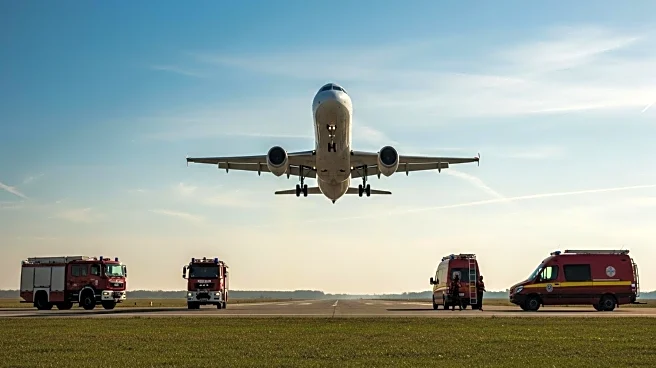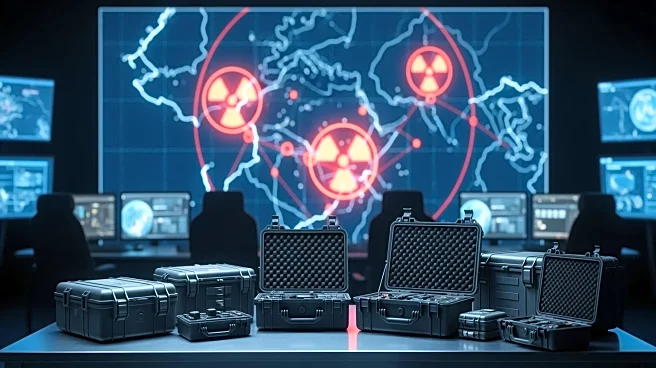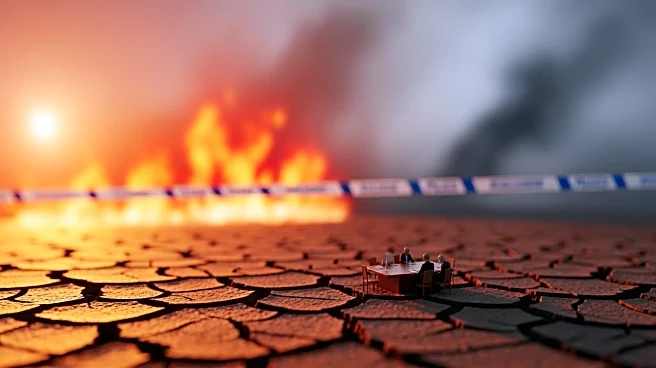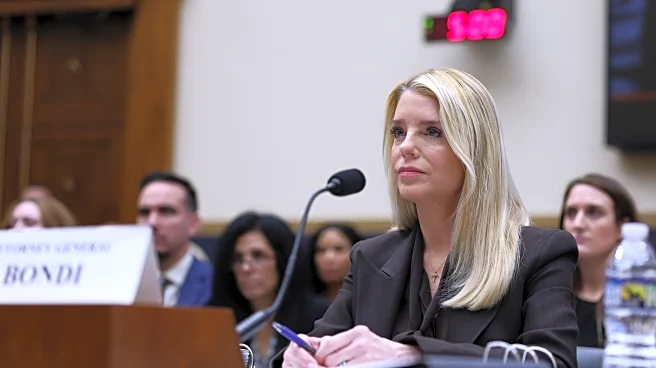What's Happening?
A British Airways flight traveling from Istanbul to London was forced to make an emergency landing in Bucharest, Romania, after four individuals on board reportedly suffered possible smoke inhalation. The Airbus A320, carrying 142 passengers, requested an emergency landing at Bucharest Henri Coanda International Airport. Upon landing, an emergency response team, including medical personnel, boarded the aircraft. Romania's Ministry of Health confirmed the presence of smoke and stated that the affected individuals are receiving medical assistance. It remains unclear whether the affected individuals are passengers or crew members. British Airways has acknowledged the diversion of Flight BA603 but has not provided further details.
Why It's Important?
The incident highlights the critical importance of safety protocols in aviation, particularly concerning smoke detection and emergency response. The potential smoke inhalation poses serious health risks, necessitating immediate medical intervention. This event may prompt airlines to review and enhance their safety measures to prevent similar occurrences. The situation also underscores the need for efficient coordination between airlines and local emergency services to ensure passenger safety. The incident could impact British Airways' operational reputation and passenger confidence, potentially influencing future travel decisions.
What's Next?
Further investigations are likely to determine the cause of the smoke and assess the aircraft's safety systems. British Airways may conduct an internal review to address any procedural shortcomings and improve safety measures. The airline might also face scrutiny from aviation regulatory bodies, which could lead to recommendations or mandates for enhanced safety protocols. Passengers affected by the incident may seek compensation or reassurance regarding future flights. The situation remains dynamic, with updates expected as more information becomes available.
Beyond the Headlines
This incident may raise broader questions about the reliability of aircraft safety systems and the effectiveness of emergency response protocols. It could lead to discussions within the aviation industry about the adequacy of current smoke detection technologies and the training of crew members in handling such emergencies. The event might also influence public perception of air travel safety, potentially affecting passenger behavior and airline policies.










